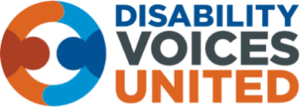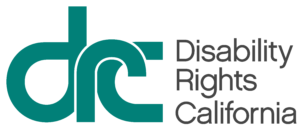Communication, Accommodation, & Empathy: Another Look
by Ed Hirtzel
she/her
This sounds silly, but as someone who sits in the question mark between “Hard of Hearing” and “this butch is Deaf,” it’s my life: What hearing people don’t understand is they’re rarely ever “accommodating” me in my deafness. If they were fully accommodating me, they’d be writing to me or learning to sign.
But, nevertheless, I speak most days. I’m the one who accommodates “deaf-impaired” people, constantly, even in my own home with my own family. I have a particular toolbox I use to accommodate deaf-impaired folks. The accommodations I make for my deaf-impaired friends, loved ones, colleagues, neighbors, and total strangers who share my community every day include:
- speaking with my voice…
- and not only speaking with my voice, but speaking with the version of my voice has been altered and trained for hearing people to be able to understand me by years of speech therapy
- using powerful speakers or headphones when enduring virtual verbal conversations on top volume so that my conversation partners need not type their words to me
- holding verbal conversations in general, which require a constant, delicate balance between lipreading and angling my head so that the ear which is less deaf is towards the speaker
- coming up with a script for every single masked social interaction (what is the person I’m speaking to likely to say? what information am I likely to need to give them?) to compensate for the fact that I will not understand anything that is said (my deafness is such that I rely on lipreading to communicate, so COVID’s done a real number on my ability to understand anything)
- using what my fiancee calls my “Autocorrect:” when I lose track of a conversation, as happens frequently, I rifle through context clues, the specific situation, and my knowledge of the person I’m talking to in order to guess at what the jumble of vague noise I just half-heard might be. Sounds silly, but it’s crucial and takes a lot of my energy on a daily basis.
Now, to be clear, I don’t really begrudge making these accommodations for my deaf-impaired pals. I like having hearing people in my life, and their presence in my life means I need to accommodate them, just as I would anyone else with needs different from my own. I just often find myself wishing the full-body effort I give to every verbal conversation went both ways – particularly now that COVID and my other disabilities have complicated my relationship to speech.
My parents, when they made the choice to mainstream me, were doing the best they could with the information they had. They had no Deaf relatives, friends, or mentors to help guide them. They certainly couldn’t have couldn’t have known that my ability to understand some verbal conversation through lipreading would be yanked away by the fact that we all have to wear masks in 2020. Furthermore, they absolutely could not have known that their firstborn would intermittently lose the ability to move her jaw.
My Sjogren’s syndrome and rheumatoid arthritis first manifested around 2015; I started the diagnosis process in 2016, and I was properly diagnosed in 2019. I haven’t found the right medication regimen yet, so I flare reliably at least once a month, often more. In 2020, these sibling diseases have escalated their patterns of attack. Lately, those flares have been multiplying, and the past three have included my jaw.
The pain was truly breathtaking. On the very worst days, I could not open my jaw to chew, to kiss my fiancee, or – most trying of all for a motormouth like me – to speak.
My communication transformed. I typed at work meetings, rescheduled them, or called out of work altogether. On the very worst days I simply could not open my mouth beyond the width of a mail slot, and it felt like I existed with my head in a throbbing red cube of pain. The psychological pressure of knowing I couldn’t really hold a conversation in real-time, as I was previously accustomed to, was a new dimension of stress for me. I have never wished I was surrounded by a community of people who could sign more, I have never wished that I was fluent in ASL more – and I’ve wished for both a lot over the course of my short life.
But it wasn’t a wholly negative experience. In fact, I believe this last cycle of flares taught me a lot about accommodation. Or rather, I should write, I believe my fiancee taught me a lot about accommodation in this last cycle of flares.
My fiancee Aleesha is hearing. I consider her a bit of an ace at accommodating me. She’s picked up the bits of ASL and home signs I use on a daily basis, she often writes or types in order to facilitate my understanding, and she makes active efforts to learn more about what works for me. She often jokes “is it too dark for you to hear me?” before turning a light on in our nearly-windowless apartment.
In the course of my sickness, I would write or sign to Aleesha, who would type or speak back depending on whether she was in good eyeshot of me. She made sure the lights in our apartment stayed on in any room I was in, so I could continue to lipread her without getting up (and dislodging the heat pack on my jaw). She even re-voiced and wrote captions for funny TikToks for me in order to try and give me a smile, which is a particular kind of hearing/Deaf Gen Z love that I am glowingly grateful for.
What she did most of all, though, was give space to me through careful listening, observation, research, and question-asking. She gave me the space to write out my communication, or to type it, without interruption or lapse of attention. She considered whether I was capable of lipreading her in the level of pain I was in, and often I noticed that she chose to deliberately type, so I would not have to expend energy trying. She independently researched and offered new communication solutions to me, and listened as I accepted or rejected them.
Aleesha did, in short, what so many of us fail to do when we engage with other folks who communicate in ways we personally do not consider “the norm.” She never assumed. She did not once push me to speak regardless of my flare. She observed, she listened, and when she wasn’t sure, she asked. Then, when she got an answer, she respected it and incorporated it into our life together.
In other words, the burden of communication was not exclusively or mostly on me. We shouldered it together, and she adapted to my needs as they changed and as we discovered what worked best together.
Now, that’s accommodation.
When we talk about accommodation in the new world that COVID has thrust us into, I would like to reimagine what “accommodation” means. The pandemic has revealed terrible flaws in the way we live so much of our lives. We can choose to turn away from that knowledge, or we can step into an incredible opportunity before us to examine our approach to community, to conversation, to communication. What assumptions are we making when we provide people accommodations? Do we assume, for example, that simply because someone is “able to participate” in a conversation that they are “accommodated for?” Do we assume, for example, that we or that others will always be able to communicate how we do now? In what ways are we simply making folks’ natural ways of communicating more convenient for us? How can we, as individuals and communities, stretch to truly include people of all communication modes and needs?
And do y’all know where I can get some of those darn transparent masks?
The Communication Disabilities Access Network hosts blogs by self-advocates. If you’re interested in pitching a blog idea to us, please email us at info@dvunited.org.



